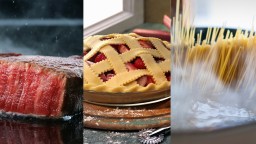food science
Never made a turkey before? Don’t worry, science can help.
What’s the most important ingredient in cooking? If you think it’s love, give yourself zero pats on the back. According to Alton Brown, it’s scientific enquiry.
▸
6 min
—
with

